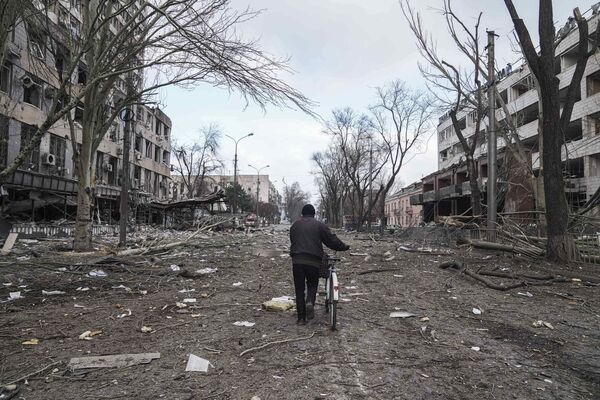Newsletter
Mar
15
2022
March 24th, 2022
Dear Readers,
One month into the war in Ukraine, it’s clear that the conflict’s geopolitical ramifications will be wide-ranging, and many are warning of a revived cold war between the United States and Russia—a prospect that some analysts and authors were raising even before last month. But historical analogies are never exact, and there are many important distinctions to be drawn between the Cold War and the present confrontation, not all of which are reassuring.
For this week’s newsletter, I called up Stephen Wertheim, who is a senior fellow in the American Statecraft Program at the Carnegie Endowment for International Peace, the author of Tomorrow the World: The Growth of U.S. Global Supremacy, and a leading critic of interventionist foreign policy. We discussed how today’s situation compares to the Cold War, and the various unsettling scenarios that might play out. Our conversation has been condensed and edited.
Best,
David Klion
Newsletter Editor

A man walks with a bicycle down a street damaged by Russian shelling in Mariupol, Ukraine, March 10th, 2022.
David Klion: How appropriate is the term “new cold war” to describe the current geopolitical standoff surrounding the war in Ukraine?
Stephern Wertheim: I think the Cold War is a pretty poor metaphor if it’s meant to draw similarities between then and now. It’s more powerful if it’s used to raise a warning about where we may be heading: toward a state of permanent and open-ended hostility, where no meaningful diplomacy can take place and outstanding differences can’t be resolved. If you look at a map of which countries worldwide have imposed these sanctions on Russia, it’s quite similar to a map of the so-called free world that sought to contain the Soviet bloc.
That said, those of us who warned against a cold war prior to Russia’s full-scale invasion of Ukraine now find ourselves in a very different position. Now that Russia has committed this act of aggression, one that warrants significant punishment by the West, any near-term prospect of decent relations between the US and Russia is gone. The West will undertake a serious effort to counterbalance Russian military and economic power for some time. So although the value of warning against a new cold war is minimal, there are still productive questions to ask about what the US should be doing relative to Europe, and to what extent countering Russia should be one of the foremost priorities of US foreign policy.
DK: Where do you come down on that? What priorities do you see as competing with this renewed focus on containing Russia?
SW: I think there’s a clear effort underway in Washington to seize on the war in Ukraine in order to make the case that the US should continue to be the indispensable nation. Before, the Biden administration had been trying to prioritize security in Asia and the prosperity and well-being of the American middle class, but now the administration may be tempted to add to those goals a more intensive mission to contain Russia.
DK: And those missions are possibly contradictory, right? There’s a very plausible argument that we’re delivering Russia into China’s hands, that Western sanctions are encouraging a much closer relationship between these two powers, as opposed to pitting them against each other.
SW: Yes. This is one reason why some people in Washington are concerned about imposing such severe sanctions on Russia—for example, by freezing the assets of the Russian Central Bank. While serious costs need to be imposed on Russia, the record of broad-based sanctions against other countries doesn’t suggest a high likelihood of changing their behavior. The sanctions are a gamble. And if the sanctions are maintained over the long term, the effect will be to make Russia more dependent on China. Some argue that this shift has already taken place—that Xi Jinping and Vladimir Putin have forged a close relationship, and now the US has to respond to that reality. I think that’s somewhat misguided; China’s still trying to work out exactly what its position will be, and China does have a significant economic interest in remaining engaged with the US and the West more broadly. So I don’t think it makes sense to just resign ourselves to a lockstep Sino-Russian alliance for the foreseeable future.